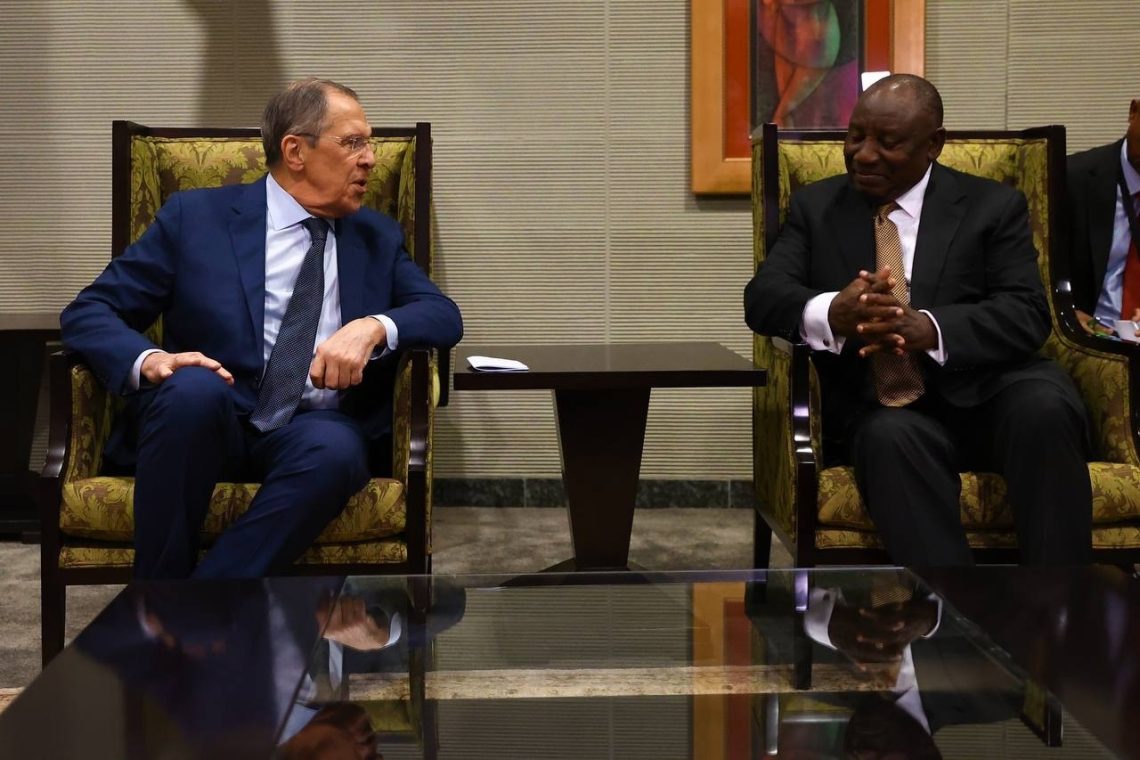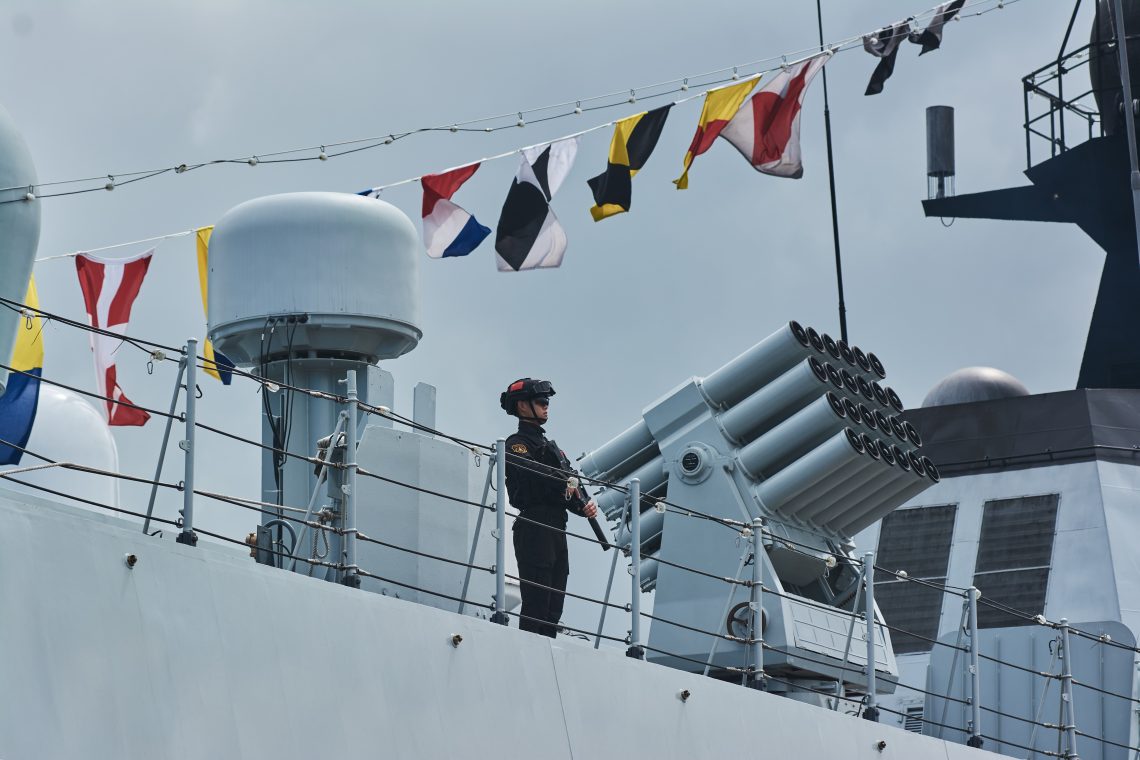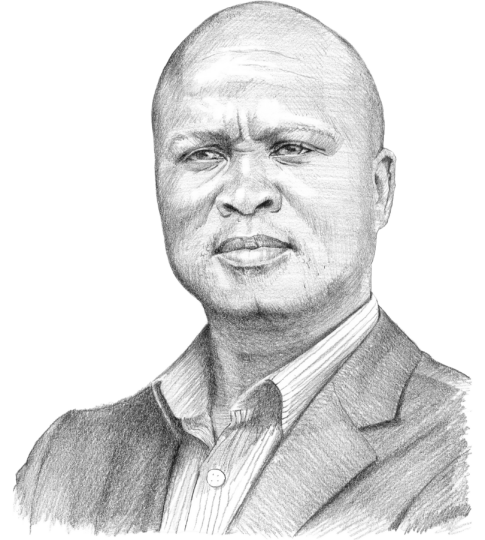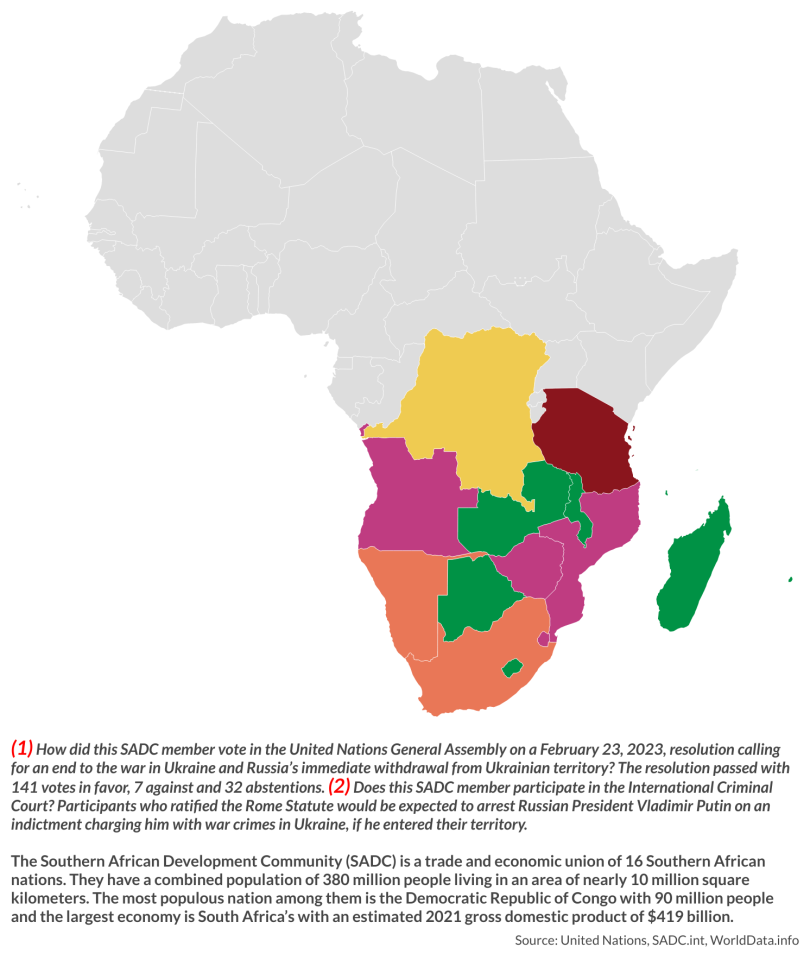Unity eludes Southern Africa over Russia’s war
A union of 16 nations with 380 million people remains divided over what stance to take on the Kremlin’s invasion of Ukraine.

In a nutshell
- South Africa, a regional economic powerhouse, is seen as aligning with Russia
- In a United Nations vote, nine of 16 Southern African states condemned the invasion
- But many in the region still hope to avoid taking either Russia or Ukraine’s side
It has been almost 14 months since Russia launched its full-scale invasion of Ukraine on February 24, 2022. Kremlin expectations of a quick victory in its “special military operation’’ proved wrong, yet the world is no closer to finding a way to end this conflict and persuading Russian President Vladimir Putin to withdraw his troops. Unfortunately, Southern African states with 380 million of the continent’s 1.4 billion people are among those that consider themselves powerless to stop the bloodshed. They cannot even unify around a single position.
The Southern African Development Community
The war has created divisions in the Southern African Development Community (SADC), a trade and economic union of 16 countries. The initial position adopted by SADC member states has been nonalignment, with some countries mildly condemning Russia while calling for an end to the conflict through negotiations between Moscow and Kyiv.
In the United Nations General Assembly vote on February 23, 2023, which called for an end to the war and an immediate withdrawal of Russia from Ukrainian territory, nine of the 16 nations voted in favor, while the rest either abstained or had no vote recorded. The resolution passed with 141 nations in favor, seven against and 32 abstentions – including 15 African nations.
Also by Ralph Mathekga
South Africa confronts cascading fallout of Russia’s war
In the early months of the war, amid expectations that Russia would have accomplished its goals in Ukraine sooner, the SADC’s position meant that member states were circumspect in condemning Russia. The SADC did not call for immediate withdrawal from Ukraine territory because of the expectation of minimal fallout following a quick Moscow victory. A protracted conflict with global ramifications was entirely unexpected.
But the reality of an enduring war raises questions about the coherence of a continuing nonaligned position for SADC member states. The war is exposing fractures and even chaotic approaches among member states.
Another potential test could be how member states respond to the March 17, 2023, arrest warrant issued by the International Criminal Court charging President Vladimir Putin with war crimes. South Africa is among the 10 members who have ratified the Rome Statute required to participate in the ICC, and the other six nations have not. Ostensibly, the nations that are part of the ICC would be required to arrest the Russian leader if he entered their territory. President Putin is charged with ordering the unlawful removal of Ukrainian children and transporting them to the Russian Federation during the ongoing war. While the numbers vary, thousands of children are involved at a minimum. Russia says the children were taken out of harm’s way and resettled for humanitarian reasons.

National interests at stake
The impact of Western sanctions on Russia drives SADC member states to consider their national interests regarding the regional position, with the West and Russia vying to persuade them to take sides. Pro-Russian sentiments are ascribed to historical economic and political ties dating back to the Soviet Union. Not even Russia’s attempts to close Ukraine’s ports for grain exports, much of it destined for Africa, have not swayed that sentiment.
South Africa is one of the regional economic powerhouses that has not only abstained from condemning the Kremlin’s invasion but also hosted 10-day joint military exercises with Russia and China, conspicuously timed for the one-year mark of the invasion. Critics called the maneuvers a tactic backing the invasion, but the South African government described the exercises as routine and insisted that the nation of 60 million people remains neutral.
Botswana, on the other hand, interprets nonalignment differently and in Ukraine’s favor. Leaders in the nation of fewer than 3 million people say the invasion is unjustifiable and condemn human rights abuses. Botswana has a history of breaking ranks with the region. It also avoided hosting Russian Foreign Minister Sergei Lavrov on his recent tour of Africa. South Africa, Sudan and Eritrea did, however, hear Mr. Lavrov out. Such invitations drew criticism as violating the principle of nonalignment. The next Russia-Africa summit is to take place July 26-29, 2023, in St. Petersburg.
Pretoria is not bothered by playing it safe with Moscow. Hosting military drills with the aggressor country while openly offending major trade partners such as the European Union raises questions about what Pretoria is trying to achieve.
Facts & figures
Scenarios
The longer the war in Ukraine drags on, the more incoherent the SADC’s position becomes. The differing interests of the member states make a regional position difficult to achieve. South Africa’s Russia-friendly policy has led the U. S. Congress to consider excluding it from the preferential trade privileges of the African Growth and Opportunity Act (AGOA). South Africa is so deeply entangled with Russian interests that many do not consider it nonaligned.
It is another example of how Russia’s war in Ukraine has fragmented the region, raising questions about how Southern African nations choose to position themselves in trade and security partnerships. A coherent and consistent regional position is unlikely until SADC members stop scrambling for national interests.










